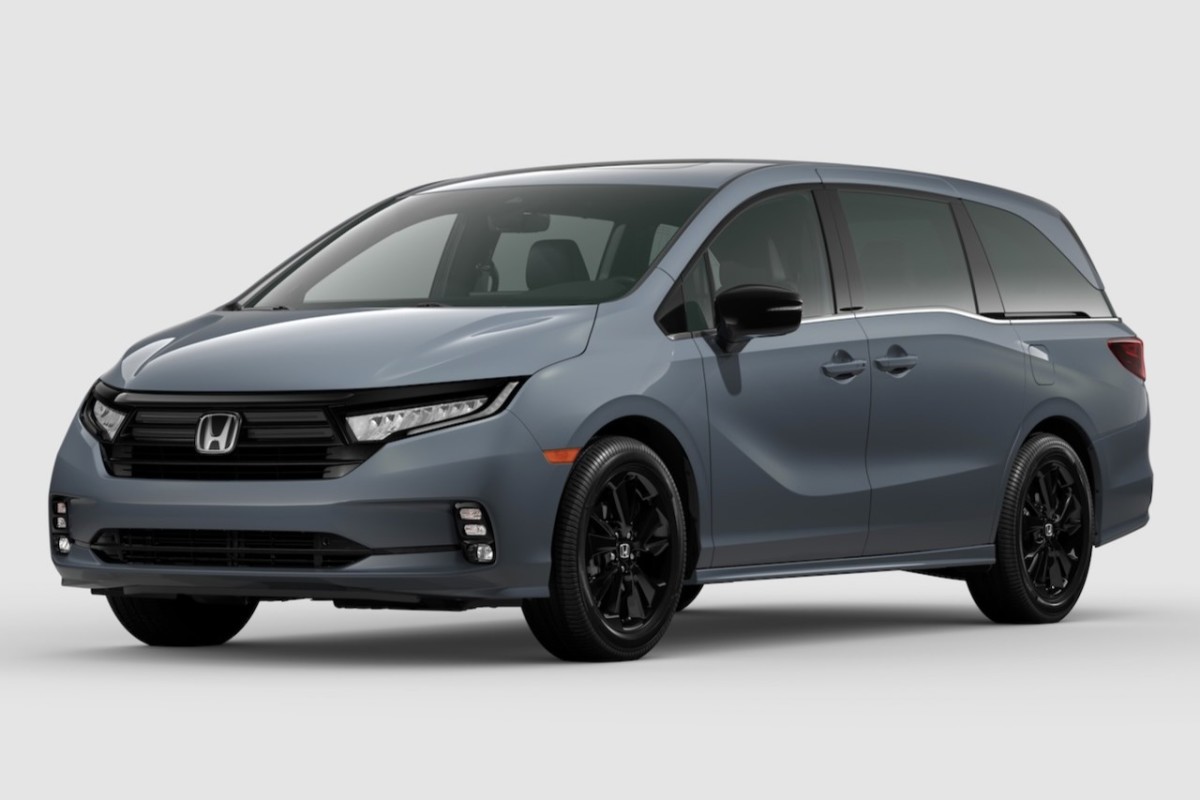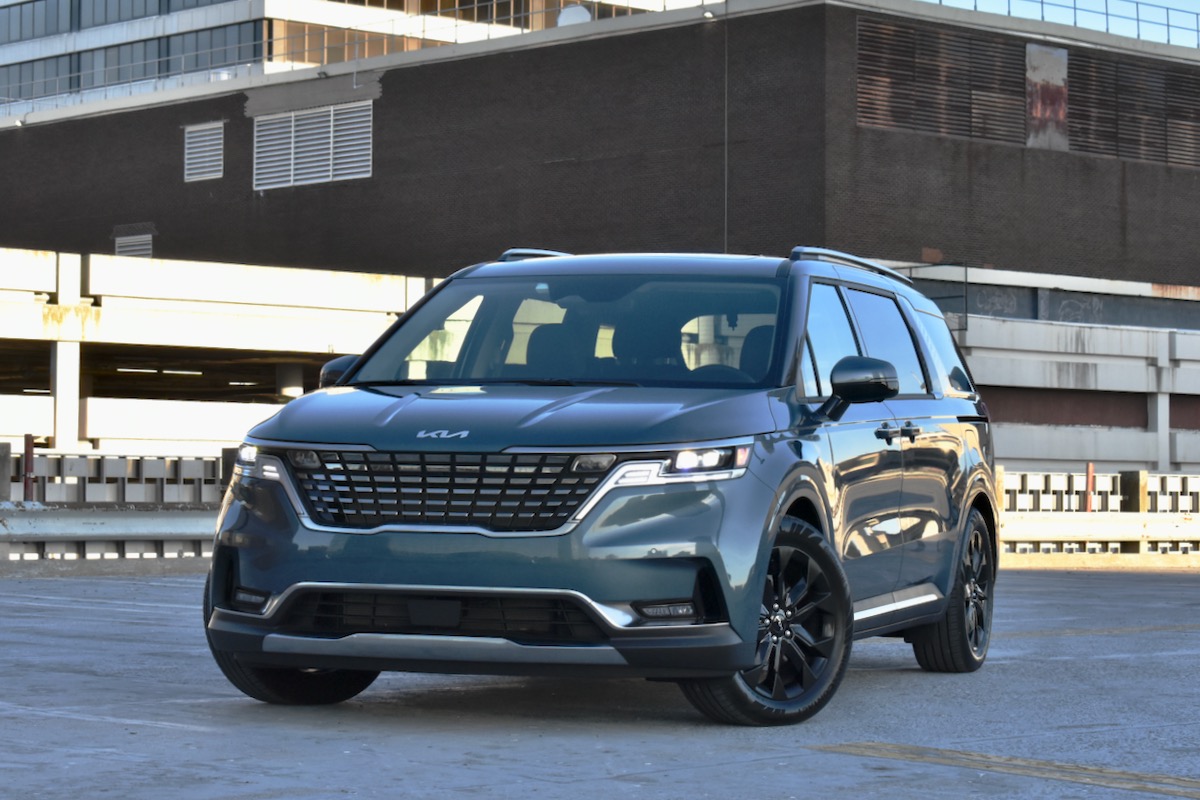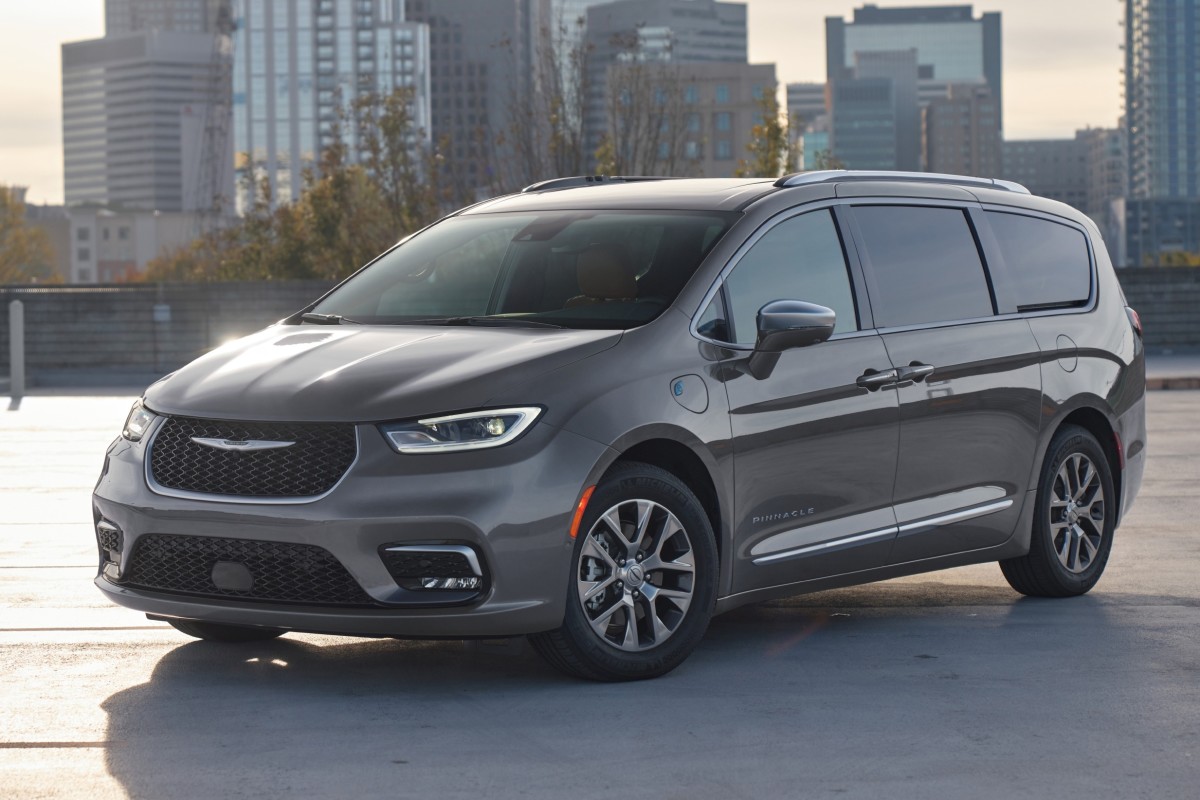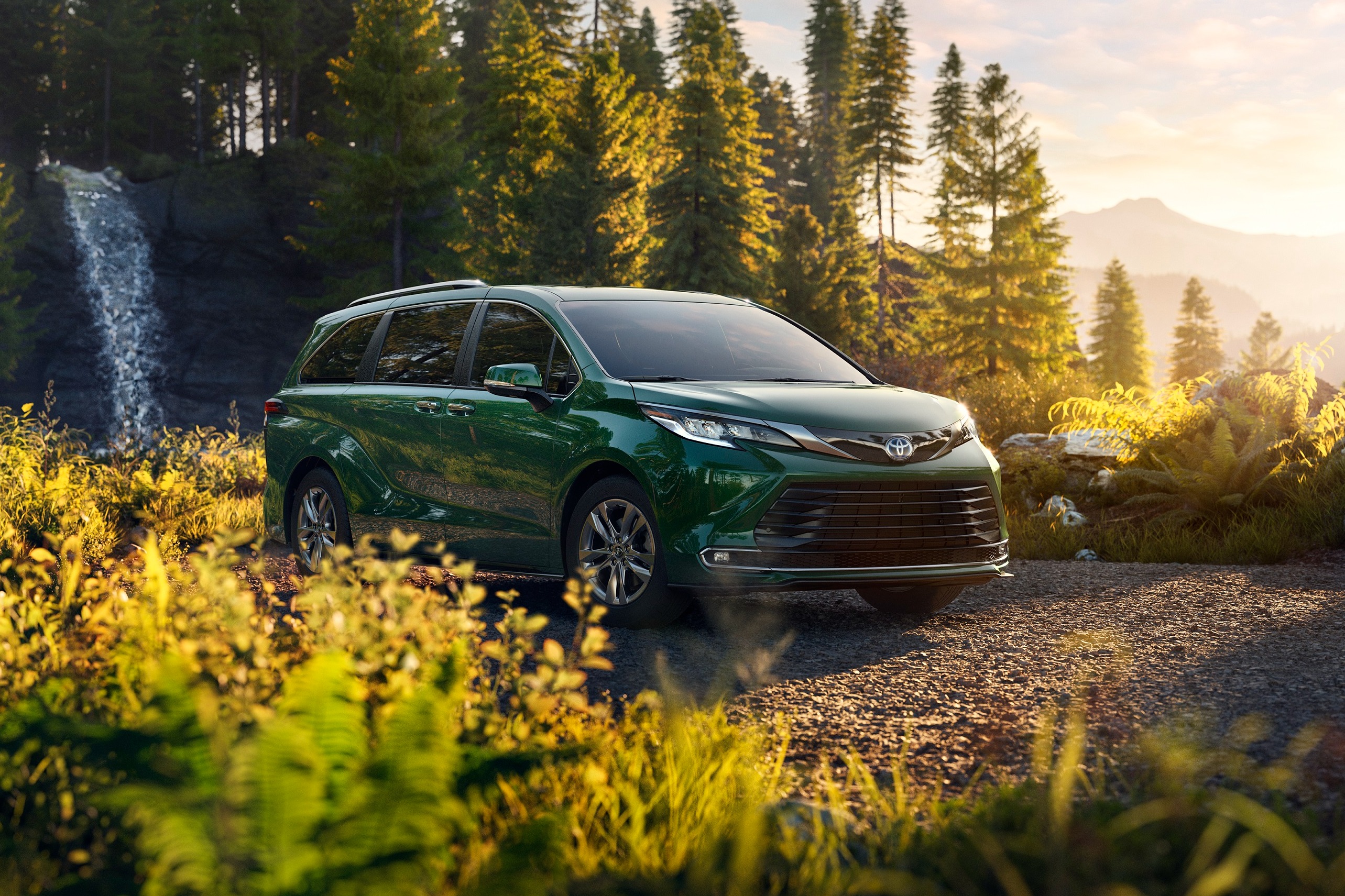Before you buy that three-row SUV and stuff it full of kids, consider this: what you actually want is a minivan. Yes, we know, groan. No one wants to drive the same vehicles their dads did. (This same principle, by the way, is entirely why ‘80s kids are so violently opposed to station wagons.) But hear us out. It really is time the minivan made a comeback as a family vehicle.
A minivan is more spacious inside than an SUV or crossover and will be much better at carrying a lot of people and stuff. Those sliding doors prevent a lot of dings in parking lots. On top of that, the minivans being built by the automotive industry today are more capable than ever—well, some of them, anyway. You can find minivans with Apple CarPlay and Android Auto, all-wheel drive (AWD), and fuel-efficient hybrid powertrains. You’ll just need to be selective about where you shop.
Below, you’ll find a list of the best minivans you can buy new in Canada in 2024. At the same time, it’s also a list of all the minivans you can buy new today. Why? There are only five minivans left on the market, so the list is too short to make meaningful omissions. Instead, we’vew listed the available options here, including a look at some pros and cons for each. If you'd prefer something more affordable, check out our separate guide to the Best Used Minivans in Canada.
The Best New Minivans in Canada for 2024
- 2024 Honda Odyssey
- 2024 Kia Carnival
- 2024 Chrysler Grand Caravan
- 2024 Chrysler Pacifica
- 2024 Toyota Sienna
2024 Honda Odyssey
The Honda Odyssey has been a mainstay of suburban driveways since the 1995 model year, so it may surprise some to see it at the bottom of our list. But with the current generation going essentially unchanged since 2018, it’s now being far outpaced by the competition.
The naturally aspirated 3.5-litre V6, which generates 280 horsepower and 262 pound-feet of torque, runs through a 10-speed automatic transmission, and feels sluggish relative to electrified rivals. On top of that, the HondaVac built-in vacuum option—formerly one of the most family-friendly reasons to choose an Odyssey—has been missing since model year 2022. Add in that front-wheel drive (FWD) is the only drivetrain configuration and the estimated combined fuel economy of 10.6 litres per 100 kilometres combined ties for second-highest in the segment, and the Odyssey’s fate is sealed.
Rumours are floating around the internet about a redesign in 2025 that includes a hybrid option, but there’s been no word on that from official or credible sources as of this writing. The Odyssey will therefore live on as arguably the least desirable minivan in for now. The 2024 Honda Odyssey has a Canadian starting manufacturer’s suggested retail price (MSRP) of $54,104.
2024 Kia Carnival
The Kia Carnival is a reincarnation of the Kia Sedona. The latter nameplate was sold in Canada from 2002 to 2021, when it was replaced by the Carnival as it launched in 2022. One of the features Kia touted most with this new release is the VIP second-row seats. They’re heated and ventilated, recline to a view of the panoramic sunroof complete with footrest, and slide forward, backward, and sideways to help occupants find their favourite spots. However, in practice, these seats are not very practical. They all but block access to the third-row seats when equipped, and they can’t be removed to open up loading room for cargo. They’re only standard on the top SX trim, though, so they won’t be in the way for most buyers.
But without these seats, the rest of the line-up is rather pedestrian and lacking in standout features. The normally aspirated 3.5-litre V6, making 290 hp and 262 lb-ft of torque sent through an 8-speed automatic transmission to FWD, doesn’t feel especially energetic. And its 10.6 L/100 km combined fuel consumption average ties the Odyssey, which is to say it’s not great. On the other hand, these vans are selling well for Kia, so the SUV-like styling must be speaking to buyers more than the rest of these attributes do. Or maybe it’s the segment-leading starting price on this affordable people hauler that’s making the difference. The 2024 Kia Carnival starts in Canada at a price of $40,283.
2024 Chrysler Grand Caravan
‘Wait,’ you may be thinking to yourself. ‘Isn’t that supposed to say Dodge Grand Caravan?’ That was the correct nameplate for a very long time, but it’s not anymore. Here’s what happened. Back in 2020, the parent company of Dodge—it was still FCA back then, not yet Stellantis—decided to rearrange that brand to include only products with performance intent. When the Dodge Grand Caravan was discontinued, that nameplate died in the U.S. and the budget-level van was moved over to Chrysler to become the Chrysler Voyager. However, Grand Caravan has so much legacy name recognition in Canada that the automaker decided to call it the Chrysler Grand Caravan in Canada instead.
Functionally, the Chrysler Grand Caravan plays the same role as the Voyager does in Chrysler USA’s line-up. It’s a defeatured, entry-level version of the more upmarket Chrysler Pacifica, using the design and some parts from before the latter’s 2021 refresh. It employs a 3.6-litre Pentastar V6 producing 287 hp and 262 lb-ft of torque, matched to a nine-speed automatic transmission and FWD. (Those are identical specs to the gas-powered Pacifica; more on that in a moment.)
The Chrysler Grand Caravan lands in the middle of our list only because the two models above it have more options and configurations available. It also ties the Kia Carnival and Honda Odyssey with an average combined fuel economy of 10.6 L/100 km. The sole trim level of the Grand Caravan offered in 2024 is the SXT, and while it’s not flashy by any means, it does come with features buyers in this segment care about like second- and third-row Stow ‘n Go collapsible seats. The 2024 Chrysler Grand Caravan has a new car starting price in Canada of $51,760.
2024 Chrysler Pacifica
Now we’re getting to the point in this list where buyers have more options. The Chrysler Pacifica is sold in Canada in both gas-powered and plug-in hybrid (PHEV) form. The gas version has the same specs as the Chrysler Grand Caravan—287 hp and 262 lb-ft of torque from a 3.6-litre Pentastar V6 engine, matched to a 9-speed automatic—but the difference here is the available AWD. Choose that, though, and you’ll pay at the pumps with the highest fuel consumption in the segment at 12.0 L/100 km combined. Standard features are on the sparser side but include Chrysler’s Uconnect 5 infotainment system with a 10.1-inch touchscreen. The 2024 Chrysler Pacifica has a Canadian starting price of $53,690.
The Chrysler Pacifica Hybrid PHEV could be an appealing alternative with its 51 kilometres of electric-only range and a combined fuel efficiency of 2.9 litres-equivalent per 100 kilometres when charged (or 8.0 L/100 km city/7.9 highway/8.0 combined when running in hybrid mode without a charge). Though it’s more expensive up front, it qualifies for the full federal and provincial EV rebates, meaning you can knock up to $12,500 off the price depending on where you live in Canada. The downsides of the PHEV are that it’s been plagued with reliability issues, power is lower at 260 hp, it doesn’t have an AWD option, and it can’t be equipped with Stow ‘n Go seats in the second row because that space is where the battery lives. Still, many owners report being happy with their purchase and the money and emissions it saves. The 2024 Chrysler Pacifica Hybrid has a starting price in Canada of $62,190 before EV incentives are applied. Federal rebates are available across the country, so expect to knock at least $5,000 off the final invoice.
2024 Toyota Sienna
This is a controversial take in some circles, but we’re convinced the Toyota Sienna is the best value for money in Canada within today’s minivan segment. Since the fourth generation of the Toyota Sienna launched for 2021, a hybrid powertrain has been standard equipment. AWD is also offered, making this the only minivan on the Canadian market available as a hybrid that drives all four wheels. While the Sienna can’t drive solely on electric power, its electrified powertrain has fuel consumption estimates of 6.6 L/100 km city, 6.5 highway, and 6.6 combined with FWD, or 6.8 city/6.6 hwy/6.7 combined with AWD. For many drivers, that’s a completely fair compromise. This is especially true on long road trips, where the Pacifica PHEV runs out of charge not long after it gets started.
A downside is that while the total system output is decent at 245 hp, the 2.5-litre four-cylinder engine is rough and underpowered when it needs to run on its own without the electric motors. The second-row seats also can’t be removed as they’re hardwired to the vehicle. If you think you’ll ever need the versatility of the entire cabin’s worth of cargo space, the Pacifica may be the way to go. But if you don’t expect you’ll ever move those rear seats anyway, the Toyota Sienna’s fuel efficiency, reliability, long list of standard safety features such as adaptive cruise control and blind spot monitoring, and overall value are tough to beat. The 2024 Toyota Sienna has a Canadian starting price of $48,235.
All pricing includes destination charges and fees but not sales taxes. U.S. models are shown, and equipment availability in Canada may vary. Looking for a used minivan instead? Check our list of the best used minivans in Canada, where you’ll find discontinued models like the Mazda Mazda5, Chrysler Town & Country, and Nissan Quest.





